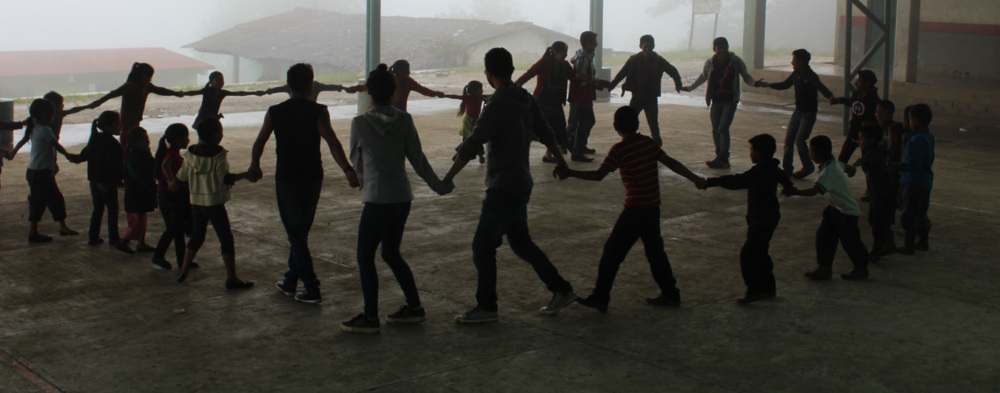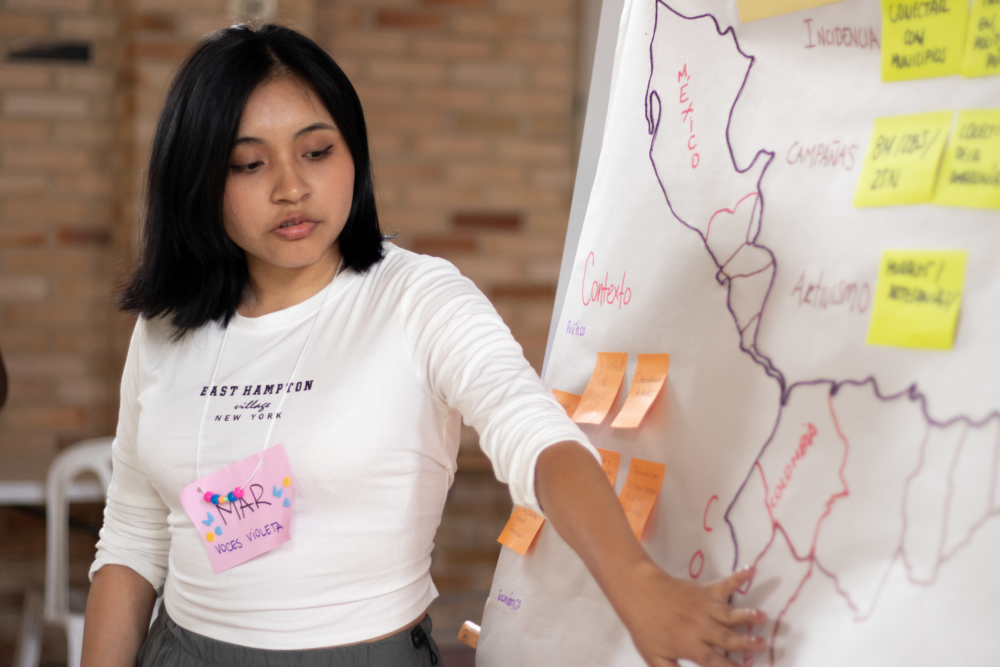
Youth power
Youth power
This blog is also available in Spanish.
Group facilitation is a crucial element within the philanthropic sector. Whether we work at an intergovernmental organization, a foundation, or a grassroots nongovernmental organization, we often have the responsibility of providing spaces for meeting and reflection to share ideas, identify opportunities, or strengthen capacities.
For many of us, facilitating makes us feel uncomfortable, worries us, or makes us nervous. Immediately, we begin to think of the worst possible scenarios. The best way to prepare and avoid catastrophe, we tell ourselves, is to start making a list of “hows”:
How do we share the issues to be discussed in a powerful and meaningful way to achieve certain results?
How do we foster dynamics that are entertaining and, at the same time, enable learning?
Facilitation, then, becomes mechanical. Just a series of steps and techniques developed by “experts” in order to direct or control a group, and thus achieve specific objectives. Little by little, we turn facilitation into an act of manipulation.
[image_caption caption=”Developing leadership skills with children in Chiapas, Mexico. © GFC” float=””]
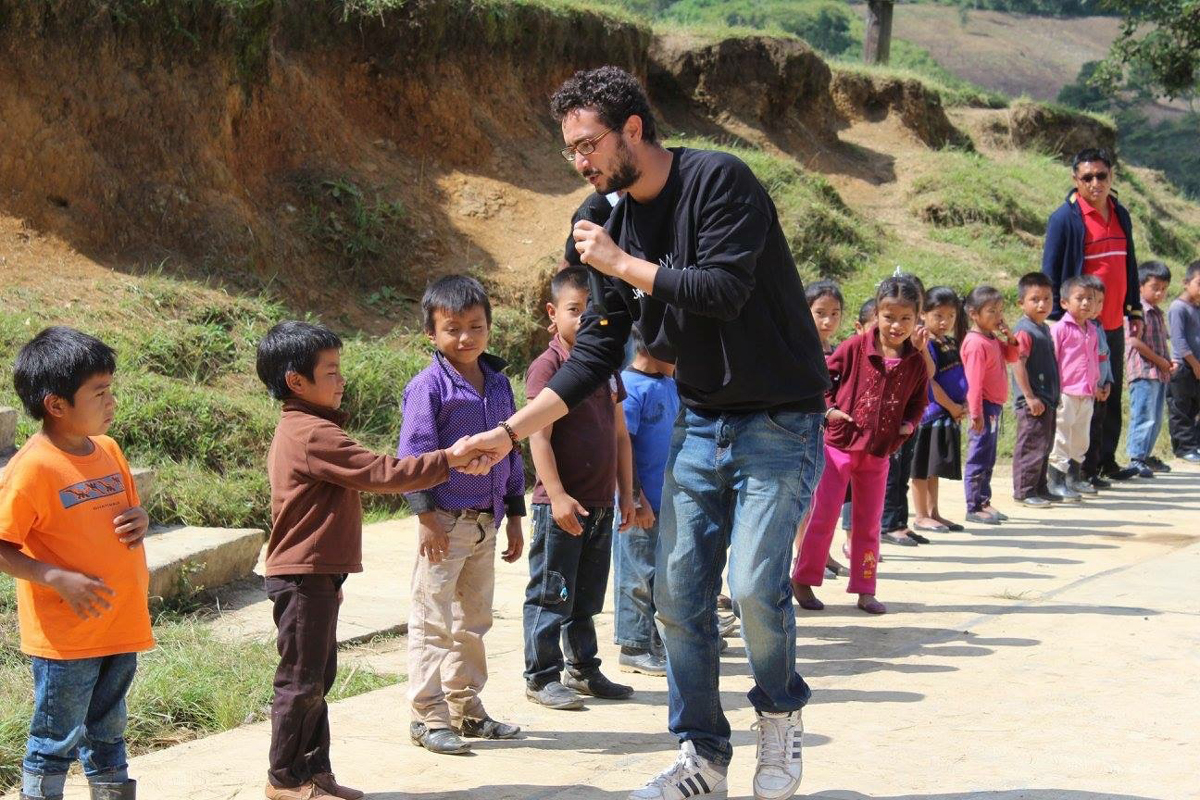
[/image_caption]
It is essential to prepare, that is undeniable. It is our responsibility to master multiple theoretical and methodological approaches to make our work easier and to respond to unexpected situations. But what if, in addition to that, we take a few minutes to think about certain “whys”?
Why facilitate, especially in times of mistrust and social distancing? Why keep organizing workshop after workshop when it is often difficult for us to identify concrete impacts, especially in the short term?
The answers, if we are really willing to look for them, are much simpler than they seem:
The facilitator should be the one who talks the least and listens the most. Their job is to encourage a dialogue based on love and respect.
Facilitating is, above all, a labor of care.
Taking care of the space, so that everyone feels comfortable and listened to. Taking care of each one of the people who gives us a little bit of their time and dares to dream with us. Moreover, taking care of the processes, understanding that a workshop should not be an artificial space disconnected from reality, but the beginning of new personal and collective tasks to improve the lives of our family members and communities.
[image_caption caption=”Making masks to reflect on gender identities in Chiapas, Mexico. © GFC” float=””]
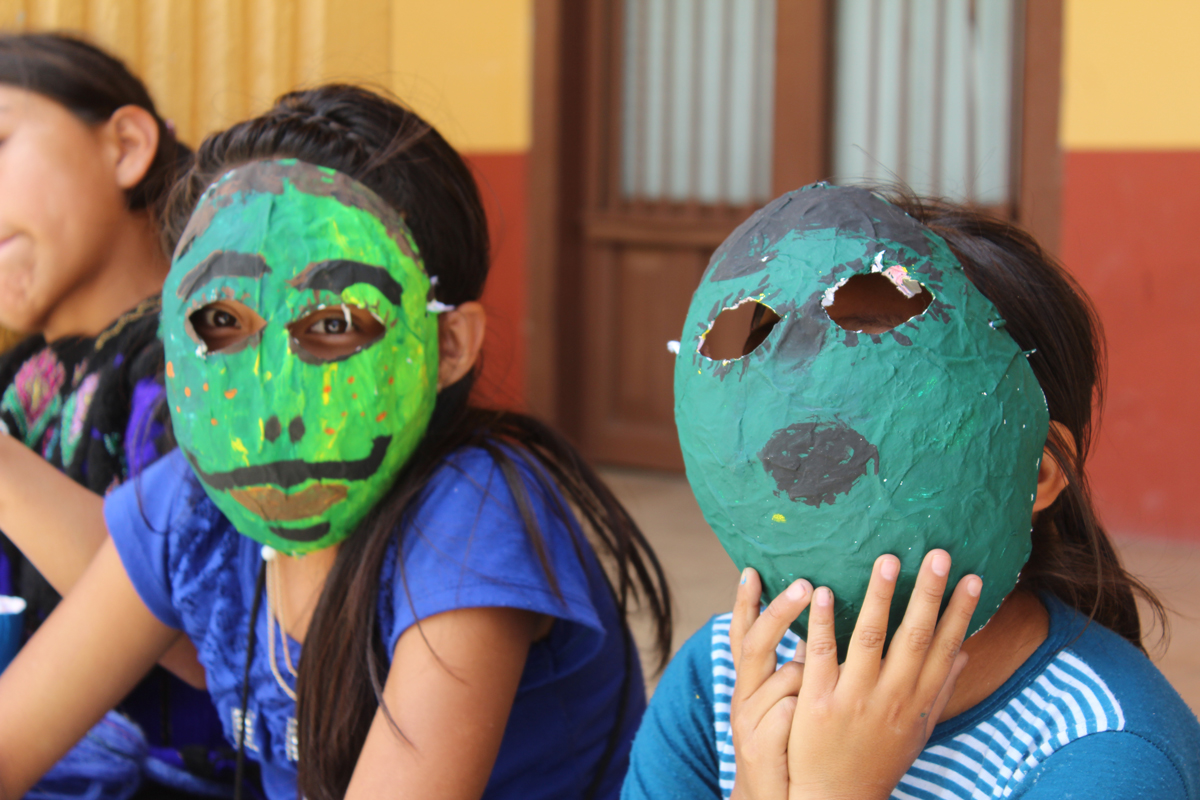
[/image_caption]
So, I invite you to consider this question: what if, instead of asking ourselves, “What do I want people to learn or do?” before preparing a group convening, we ask ourselves, “How do I want the participants to feel once they finish the activities?”
I promise you that if you do this, not only will you never lose the ethical aspect of facilitation, but people will respond positively to the proposed goals and topics. There is nothing more powerful than feeling heard.
We facilitate to understand that many of our pains and fears are shared, and that overcoming them is always a little easier if we do it with others.
Facilitating is building inclusive spaces where diversity is always recognized, honored, and respected by everyone. It is helping to resist the dangers of a single story, and working to rebuild our collective memory in terms of resistance and dignity.
Facilitating is not imposing an agenda. It is fostering a space to build it collectively. And this requires us, as facilitators, to always be open to the unexpected.
[image_caption caption=”Young people participating in the Transnational Convening for Migrant Children and Youth in Chiapas, Mexico. © GFC” float=””]
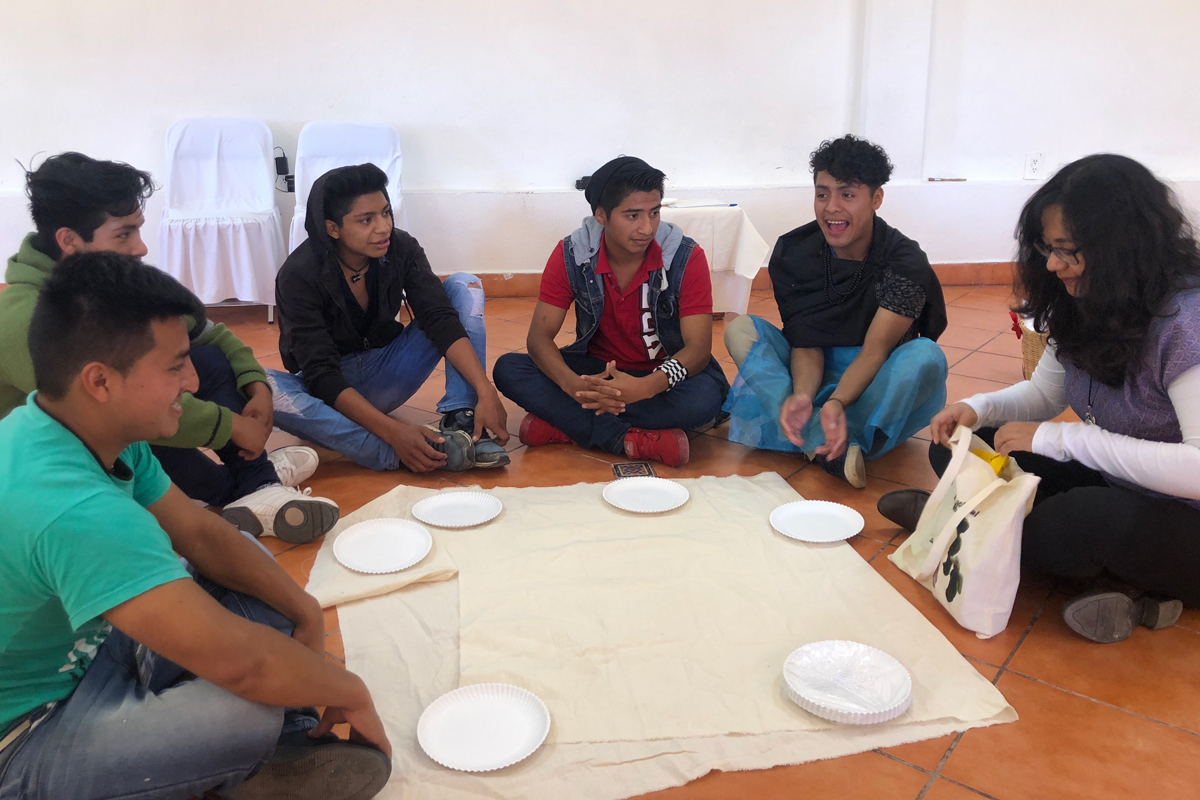
[/image_caption]
In addition to being caring, the main qualities of an effective facilitator are responsible flexibility and active listening. We plan the activities with the certainty that we will have to make modifications along the way. What guide us as facilitators are the responses of the participants and their needs. If the participants are bored or not interested in the activities, it is never their fault, it is ours. And it is our wake-up call to start over and propose something different.
A good facilitator listens in order to understand, not to respond or intervene, and invites others to do the same. Facilitating is walking with others.
We facilitate to see with different eyes, to question ourselves, to combat the silences that have been imposed on us, and to rewrite our history.
A facilitator is not a teacher. Their job is not to transfer information or mechanically repeat ideas or concepts.
Their main job is to build new languages, question what participants have learned, and reveal what is hidden. Their job is to show participants that the realities that oppress us are not great monsters without a name or a history, but the result of concrete actions and situations that can be – and must be – modified.
Facilitating is promoting practices of freedom, fostering the critical thinking of the participants, and giving them spaces to discover how they want to participate in the transformation of their reality.
A facilitator creates respectful discomfort. Thus, they contribute to expanding the creative capacities of the participants so that they can become protagonists in their own stories.
Remembering why we facilitate and the responsibility that working with human beings entails always helps us to trust in processes of change, people, and ourselves, although many times we do not have all the answers. The “whys” are what give meaning to what we do.
When we are clear about the “whys,” everything is easier.
And now, we are ready to think about the “hows”. So stay tuned for the next chapter.
Header photo: The author participating in an activity with children in Chiapas, Mexico. © GFC
